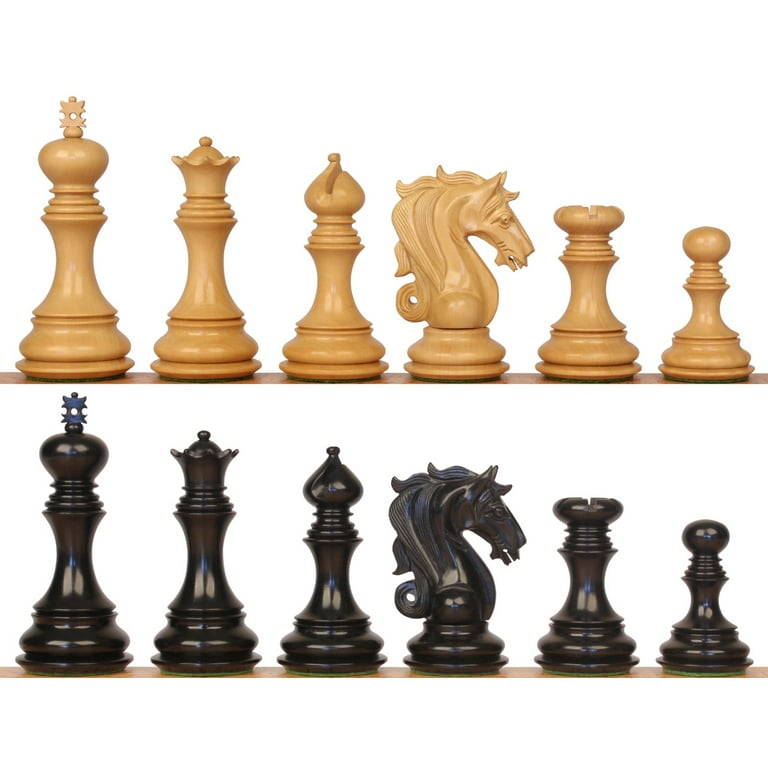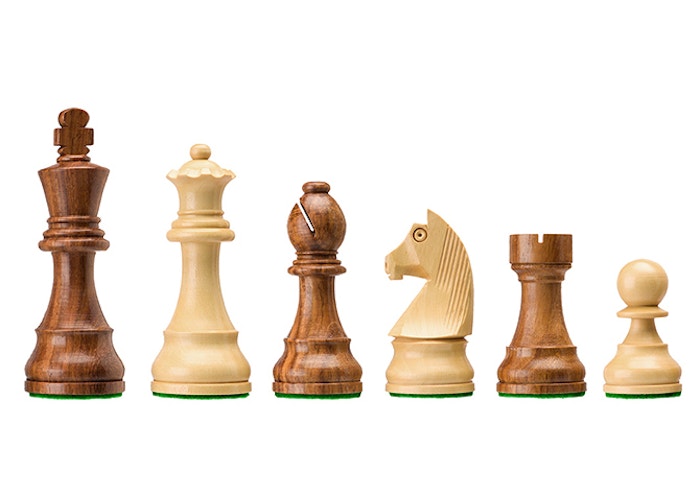Future of Chess in the Online World
Wiki Article
All About Chess: Discover the Fascinating History and Methods Behind the Game
Chess, with its beginnings dating back to 6th century India, has actually changed considerably over the centuries. This game has actually mesmerized minds worldwide, showcasing the brilliance of famous gamers like Garry Kasparov and Bobby Fischer. Understanding the ins and outs of chess, from the movements of each piece to vital approaches, exposes its depth. The question remains: what drives the enduring fascination with this old game? Exploring its background and techniques might discover deeper understandings.The Beginnings of Chess: A Trip Via Time
Although the specific beginnings of chess continue to be uncertain, historic evidence recommends that the game developed from earlier strategies played in India around the 6th century. Understood as Chaturanga, this early kind of chess included items standing for infantry, mounties, elephants, and chariots, reflecting the army strategies of the time. As Chaturanga spread out through profession courses, it adapted to different cultures, resulting in the development of Shatranj in Persia. This alternative presented new policies and piece motions, laying the structure for modern chess.Chess Prodigies: Noteworthy Figures in the Game's History
Throughout chess history, impressive prodigies have arised, shaping the game's landscape and inspiring future generations. From fabulous champions that controlled the boards in their time to contemporary abilities redefining the limitations of young people and ability, these players have actually made enduring marks on the sporting activity. Their stories highlight not only individual brilliance however additionally the developing nature of chess as a competitive venture.Fabulous Chess Champions
Chess has been shaped by the sparkle of many legendary champions whose payments have left an enduring mark on the game. Figures like Garry Kasparov, recognized for his dynamic style and unrivaled strategic deepness, dominated the chess globe throughout the late 20th century. Anatoly Karpov, his rival, showcased exceptional positional understanding and psychological prowess, protecting numerous globe titles. Bobby Fischer, an American natural born player, transformed chess with his unmatched talent and extreme emphasis, finishing in his 1972 Globe Champion success. Furthermore, José Raúl Capablanca's all-natural capability and endgame proficiency set brand-new criteria in the early 20th century. These champions not only excelled in competitors yet likewise inspired generations, forming chess right into a worldwide sensation commemorated for its intellectual roughness and virtuosity.Modern Prodigies
What makes a chess prodigy genuinely remarkable? The capacity to comprehend complicated strategies at a tremendously young age establishes them apart. Contemporary chess natural born players like Magnus Carlsen, Fabiano Caruana, and Alireza Firouzja have actually astounded target markets with their amazing ability. Carlsen, ending up being a Grandmaster at just 13, redefined assumptions and rose to World Champ status. Caruana, known for his deep preparation and tactical prowess, has regularly challenged the elite. Firouzja, birthed in 2003, stands for the brand-new generation, incorporating imagination with unrelenting passion. These gamers exemplify a blend of innate ability, rigorous training, and psychological perseverance, influencing the game's advancement. Their payments ensure that chess continues to be a vibrant and dynamic self-control, inspiring future generations of gamers worldwide.Understanding the Chessboard: Pieces and Their Movements
The chessboard offers as the field of battle where complex techniques unravel, featuring a special collection of pieces, each with unique activities and functions. Consisting of 64 squares arranged in an 8x8 grid, it is home to the king, queen, rooks, knights, bishops, and pawns. The king, one of the most vital item, moves one square in any direction, while the queen, one of the most effective, can pass through any variety of squares up and down, horizontally, or diagonally. Rooks relocate straight lines, whereas diocesans glide diagonally throughout the board. Knights have an unique L-shaped activity, jumping over other pieces. Pawns advance one square yet capture diagonally, with the option to move 2 squares forward on their initial step. Each piece's movement contributes to the detailed dancing of technique and methods, making the chessboard a vibrant phase for intellectual battle. Recognizing these movements is basic for players aiming to browse the complexities of the game.
Important Strategies for Beginners: Tips to Boost Your Game
Grasping the activities of chess items lays the foundation for developing reliable techniques. For beginners, concentrating on regulating the center of the board is crucial. This enables for higher wheelchair and influence over the game. Establishing items early, instead of relocating the very same piece numerous times, can assist establish a solid position.Furthermore, players need to focus on king security by castling early, making certain the king is put away from threats. Recognizing tactical opportunities, such as forks, pins, and skewers, can supply advantages in product gain. It is likewise vital to plan ahead; preparing for an opponent's actions fosters far better defensive and offending play.
Ultimately, keeping a well balanced method in between aggressive and defensive approaches can avoid unneeded errors. By executing these fundamental approaches, newbies can improve their gameplay and construct a solid structure for future enhancement in chess.
Advanced Tips: Raising Your Chess Skills
In the domain name of chess, understanding sophisticated techniques can significantly improve a player's capacity. Recognizing tactical patterns, grasping endgame strategies, and comprehending opening up principles are vital aspects that boost one's game. These components not just improve general performance however additionally foster much deeper strategic reasoning.
Tactical Patterns Recognition
Identifying tactical patterns is vital for elevating chess skills to a greater level. Players that grasp these patterns can determine opportunities for tactical maneuvers, enhancing their possibilities of success. Usual patterns include forks, pins, skewers, and found attacks, each offering critical advantages when implemented successfully. Recognizing these motifs permits gamers to anticipate their challenger's actions and counter them efficiently. Furthermore, researching traditional games can disclose just how masters employed tactical patterns to secure victories. Normal practice and evaluation of one's own games can further strengthen pattern recognition, enabling gamers to react swiftly and properly throughout matches. Inevitably, developing this skill changes the technique to chess, linking the space in between amateur and sophisticated play.Endgame Strategies Proficiency
Effective endgame techniques can significantly affect the result of a chess suit, typically determining the difference in between a win and a draw. Advanced gamers comprehend the value of item sychronisation and the use of pawns in the endgame. Trick methods consist of promoting pawns to queens and developing passed pawns that can progress unblocked. Acknowledging critical positions, such as the resistance and zugzwang, is vital for achieving beneficial configurations. Mastery of endgame strategies, such as king and pawn versus king scenarios, can transform possible losses right into draws or wins. Gamers ought to likewise concentrate on simplifying the placement when ahead, trading pieces to transform product advantages into victory. Continuous technique and evaluation of endgame positions will certainly raise a player's total chess skills significantly.
Opening Up Concepts Comprehending
Grasping endgame approaches lays a strong foundation for recognizing opening principles. In chess, the opening stage is crucial as it sets the phase for the center game. Chess. Players should focus on control of the center, developing items effectively, and making sure king security. Reliable openings frequently involve relocating pawns to develop central dominance while working with minor and major pieces for top task. The concepts emphasize stagnating the same piece multiple times without requirement and preventing early queen growth, which can lead to susceptability. By adhering to these fundamental approaches, players can produce a solid structure that enhances their tactical possibilities later on in the game. Recognizing these opening from this source principles is necessary for boosting one's chess abilities and achieving success
The Cultural Influence of Chess: Why It Matters Today
Chess, a video game with origins mapping back over a millennium, continues to put in an extensive cultural impact around the world. It goes beyond mere home entertainment, working as a tool for education, important reasoning, and social click this communication. Several academic establishments include chess right into their curricula, promoting cognitive growth and calculated reasoning amongst pupils. The game likewise promotes inclusivity, combining varied areas and encouraging intergenerational connections.Chess has actually permeated prominent society, motivating literary works, films, and even fashion. Iconic figures like Bobby Fischer and Garry Kasparov have actually ended up being social icons, highlighting the game's possibility for personal and nationwide pride. In the electronic age, on-line platforms have further equalized accessibility to chess, making it possible for millions to engage with the game. As society encounters complicated obstacles, chess remains appropriate, providing lessons in persistence, foresight, and resilience, therefore reinforcing its significance in modern society and day-to-day life.
Often Asked Concerns
Just How Has Chess Influenced Pop Culture and Media?
Chess has substantially influenced pop culture and media, appearing in films, literary works, and art. It signifies intelligence and technique, inspiring narratives and personalities while advertising themes of dispute, competition, and the human experience.What Are the Perks of Playing Chess for Mental Health?

Exist Various Chess Versions Messed Around the Globe?
Yes, various chess versions are played around the world, consisting of Bughouse, Chess960, and Three-check chess. Each alternative introduces distinct policies and methods, giving gamers with varied experiences and challenges that differ from conventional chess.Exactly How Do Chess Engines and AI Effect Modern Chess?
Chess engines and AI substantially enhance contemporary chess by giving innovative evaluation, improving player abilities, and affecting approaches. They offer as training devices and competitors help, changing just how gamers approach the game whatsoever levels.What Prevail Mistaken Beliefs Concerning Chess Athletes?
Common mistaken beliefs about chess players include the idea that they are all introverted brilliants, only concentrated on method. Chess. Actually, players differ substantially in individuality, background, and approach, frequently their website delighting in social interactions and varied rate of interestsReport this wiki page